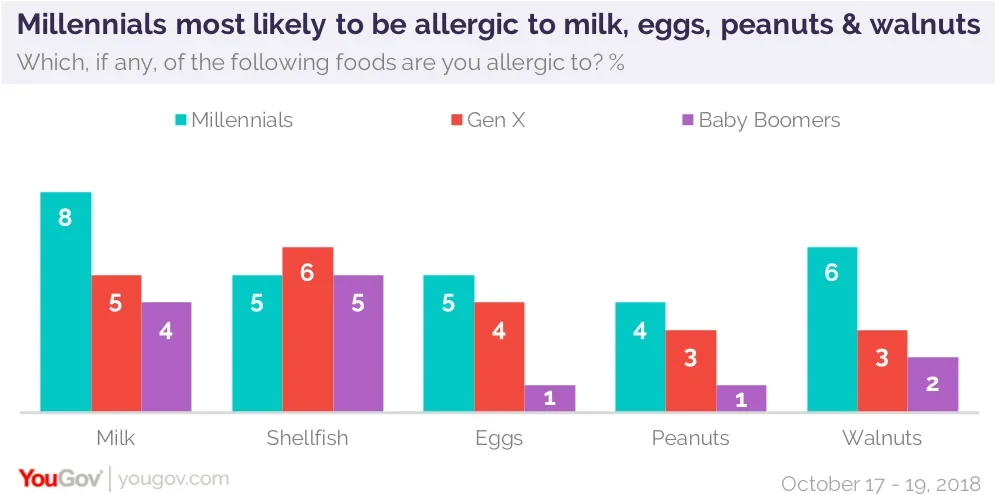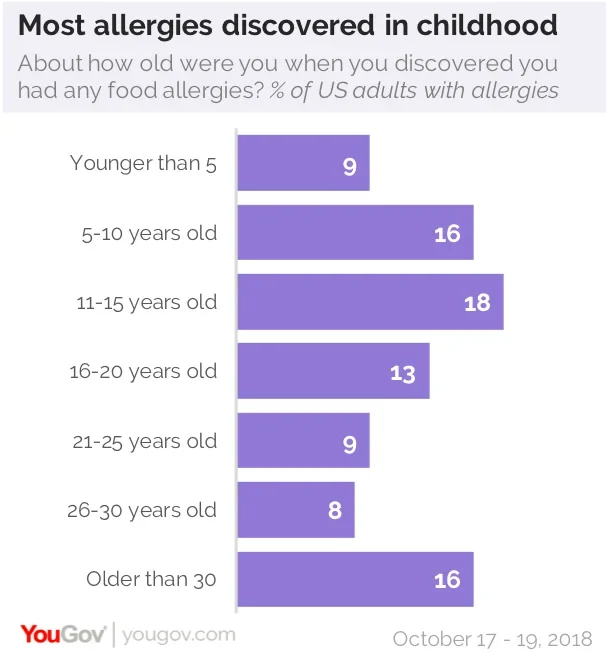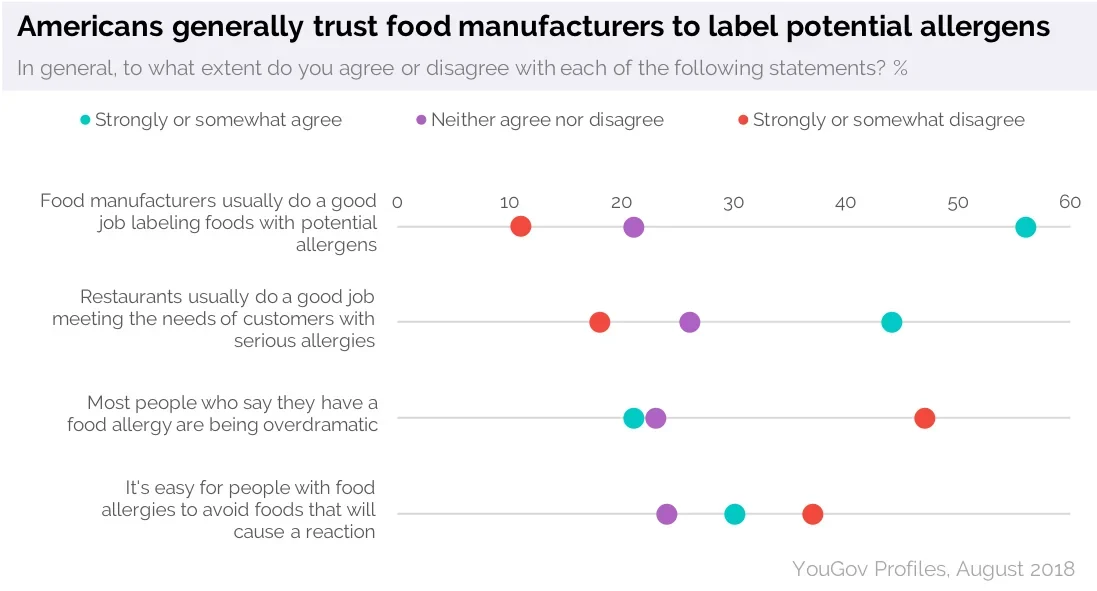About six in ten (59%) people agreed that food manufacturers usually do a good job labeling foods with potential allergens
Though many people don’t spend too much time fretting about the ingredients in their dishes, people with allergies may have to pay special attention to what goes into their food. The most common allergies among Americans are milk (5%) and shellfish (5%), according to new data from YouGov Omnibus. Other somewhat common ones included eggs (3%), peanuts (3%), and walnuts (3%). Interestingly, millennials are more likely than older generations to say that they have food allergies. Only 15% of baby boomers and 21% of Gen X’ers say they have food allergies, while 28% of millennials report being allergic to certain foods. They were particularly likely to say they’re allergic to milk: 8% of millennials say this, compared to 5% of Gen X and 4% of baby boomers.

Those with food allergies reported that their most common allergic symptoms are itching or swelling in their mouths (40%), vomiting and other gastrointestinal symptoms (35%), hives (26%), and trouble breathing (26%). But not everyone chooses to treat these symptoms when they arise. Nearly a quarter (24%) of people with allergies say they don’t treat their symptoms when they have a reaction to food. Another 46% say they use antihistamines to treat their symptoms while 19% use an epinephrine injection, such as an EpiPen. Most allergy-havers discover their allergies in childhood or adolescence: 56% say they found out they had allergies before the age of 20.
When it comes to grocery shopping and restaurants, people with allergies sometimes need to take extra precautions. One in five (20%) reports that their experience grocery shopping is “affected a lot” by their allergy, while an equal number (20%) say their experience is “affected somewhat” and another 20% say it’s “affected a little.” Another 35% say their food allergy doesn’t affect their grocery shopping experience at all. When it comes to eating in restaurants, the numbers are similar: 19% say their allergy affects their experience “a lot,” 21% say it affects them “somewhat,” 26% say they’re affected “a little” and 29% say they’re not affected at all.
Overall, US adults tend to trust food manufacturers more than restaurants when it comes to serving allergic people. About six in ten (59%) people agreed that food manufacturers usually do a good job labeling foods with potential allergens. A lower number (44%) agreed that restaurants usually do a good job meeting the needs of customers with serious allergies. Only 30% of people say it’s “easy for people with food allergies to avoid foods that will cause a reaction.” A larger number (37%) disagreed with this statement.


Most people also believe those who say that they have allergies. Only 21% agreed with the statement “Most people who say they have a food allergy are being overdramatic,” while 47% strongly or somewhat disagreed.
See full results here.
Learn more about YouGov Omnibus.
Image: Getty






